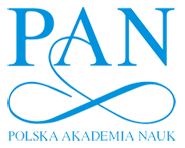Odszedł Kapitan Jerzy Różański
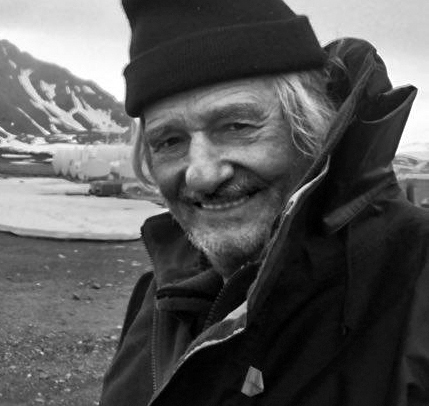 Z wielkim żalem informujemy, że w dniu 27 grudnia 2020 roku po ciężkiej chorobie odszedł od nas Kapitan Jerzy Różański.
Z wielkim żalem informujemy, że w dniu 27 grudnia 2020 roku po ciężkiej chorobie odszedł od nas Kapitan Jerzy Różański.
Jerzy Różański to budowniczy, właściciel i Kapitan jachtu Eltanin. Związany z Arktyką już od lat 70tych. To wielki przyjaciel wszystkich polarników, który wielokrotnie pomagał polskim ekspedycjom badawczym. Przez wiele lat pływał Eltaninem między Hornsundem (Polską Stacją Polarną im. Stanisława Siedleckiego), Calypsobyen (Stacją Polarną UMCS z Lublina), Kaffiøyrą (Stacją Polarną UMK z Torunia), Petuniabuktą (bazą Uniwersytetu im. Adama Mickiewicza z Poznania) i po niezliczonych innych miejscach, w które mało kto był gotów wpłynąć. Nikt tak nie znał wód Svalbardu jak On. Nigdy nie zawiódł tych, co jego pomocy potrzebowali. To jeden z najbardziej rozpoznawalnych Polaków na Svalbardzie.
Jurek Różański wielokrotnie pokonywał niebezpieczne fale arktycznych wód. Tej ostatniej, jaką była Jego choroba, choć się nie poddawał, nie udało mu się pokonać…W naszej pamięci Kapitan Jerzy Różański na zawsze pozostanie, jako nasz wielki Polarny Przyjaciel.
Spitsbergeńskie fiordy już nigdy nie będą takie same…
Żegnaj Kapitanie, żegnaj Przyjacielu!
Polska Polityka Polarna
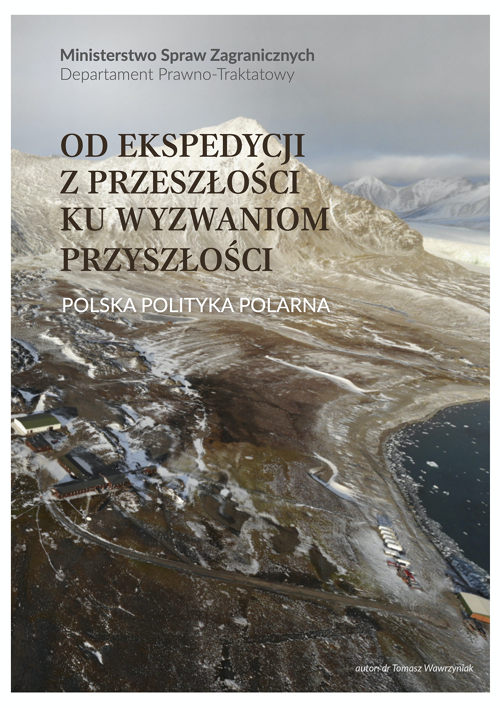
11 września 2020 roku Rada Ministrów przyjęła uchwałę w sprawie zatwierdzenia dokumentu rządowego pt.: „Od ekspedycji z przeszłości ku wyzwaniom przyszłości. Polska Polityka Polarna”.
Dokument, koordynowany przez Ministerstwo Spraw Zagranicznych, powstał w ścisłej współpracy z polskimi badaczami polarnymi. Wykorzystano również dokumenty wypracowane przez polarne środowisko naukowe, jak „Strategia polskich badań polarnych. Koncepcja na lata 2017–2027”.
Główny długoterminowy cel polskiej polityki polarnej to „zapewnienie stałej i aktywnej obecności Polski w dialogu, współpracy oraz kształtowaniu polityki polarnej na świecie, przy wykorzystaniu posiadanych zasobów własnych oraz poszukiwaniu nowych”, co przekłada się na cztery cele szczegółowe:
- zapewnienie aktywnego udziału oraz wpływu Polski na procesy kształtujące przyszłość regionów polarnych,
- wzmacnianie obecności Polski w regionach polarnych, w tym zapewnienie rozwoju aktywności naukowej polskich badaczy,
- zapewnienie problematyce polarnej należytej wagi w polityce wewnętrznej państwa,
- aktywne poszukiwanie nowych i innowacyjnych ścieżek rozwoju pozycji Polski w sprawach polarnych.
Cele te będą realizowane poprzez szerokie spektrum działań o charakterze politycznym, prawnym, instytucjonalnym oraz inwestycyjnym, których zarys prezentuje dokument PPP.
Zachęcamy do zapoznania się z całością dokumentu, który dostępny jest na stronie MSZ: https://www.gov.pl/web/dyplomacja/od-ekspedycji-z-przeszlosci-ku-wyzwaniom-przyszlosci-polska-polityka-polarna.
Zmarł uczestnik 44. Polskiej Wyprawy Antarktycznej
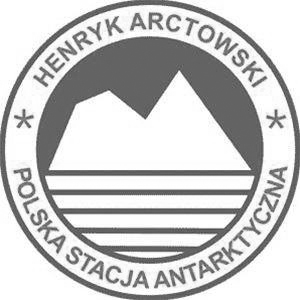
Z głębokim żalem informujemy, że w dniu 29 sierpnia br. zmarł nagle uczestnik 44. Polskiej Wyprawy Antarktycznej. Poruszeni tą śmiercią przekazujemy wyrazy najgłębszego współczucia Rodzicom Macieja, a także Rodzinie i Bliskim.
Instytut Biochemii i Biofizyki PAN
3rd Arctic Science Ministerial Research Community Workshops
 You are invited to participate in an online workshop to discuss topics and ideas that you think are important for policy makers and the Arctic Science Ministers to better understand and prioritize at the Third Arctic Science Ministerial (ASM3; https://asm3.org/). Bringing together States, Arctic Indigenous participants, and international organizations, ASM3 aims to take action on coordinated Arctic observing, research, and education in an open and transparent format which includes all Arctic stakeholders.
You are invited to participate in an online workshop to discuss topics and ideas that you think are important for policy makers and the Arctic Science Ministers to better understand and prioritize at the Third Arctic Science Ministerial (ASM3; https://asm3.org/). Bringing together States, Arctic Indigenous participants, and international organizations, ASM3 aims to take action on coordinated Arctic observing, research, and education in an open and transparent format which includes all Arctic stakeholders.
In an effort to engage the broader Arctic research community in the ASM3 process, IASC (https://iasc.info/), IASSA (https://iassa.org/), and APECS (https://www.apecs.is/) are convening two ASM3 Research Community Workshops on 15 June 2020.
- Each two hour workshop will start with an introduction to the ASM3 process and lay out the goals of the workshop.
- The core of the online workshop will be an hour-long session for small group breakout discussions (6-8 people), each group dedicated to one of the four themes below.
- All attendees will then reconvene to report back and share the discussions.
- First option: 15 June 2020, 8:00-10:00 GMT(17:00 Tokyo, 11:00 Moscow, 10:00 Berlin, 9:00 London). To participate, register at http://tiny.cc/ASM3RCW1
- Second option: 15 June 2020, 16:00-18:00 GMT (8:00-10:00 Alaska, 12:00 Ottawa / Washington, D.C., 14:00 Nuuk). To participate, register at http://tiny.cc/ASM3RCW2
- Please note: the workshops will be held via Zoom, but phone call-in numbers will also be available. The workshops’ working language will be English.
We encourage ALL those who work in the realm of Arctic research to participate; this includes researchers, managers, Arctic residents and Indigenous Peoples, partners, educators, policy makers, and other stakeholders. Science ministry representatives are also welcome to participate. However, the organizers wish to emphasize that this is an opportunity for individual contributions. Workshop participants are invited to contribute their own perspectives and not necessarily to represent a broader group of any kind (there are other avenues for nations, Indigenous Peoples’ Organizations, and international science organizations).
“Knowledge for a Sustainable Arctic” is the overall theme of ASM3. Under that umbrella, four sub-themes are focused on taking action on the most urgent challenges facing the Arctic, which international scientific cooperation can help achieve:
- Observe the status of Arctic changes
- Understand the local and global impacts
- Respond to the changes based on a shared understanding
- Strengthen these efforts through education and capacity-building for future generations
These four steps are not independent, but rather an iterative cycle. They represent the necessary actions to realize our overarching goal. The four sub-themes are described in more detail here (https://asm3.org/library/Files/ASM3%20Themes.pdf).
An online workshop can enable broad participation, especially in times where conferences and international travel are cancelled and uncertain. However, we recognize that online engagement is not equal for all and can exclude people, too. In addition to participating in the online workshops, all members and stakeholders of the Arctic research community (including Arctic residents and Indigenous Peoples) are invited to fill out this survey, which mirrors the workshops’ structure: http://tiny.cc/ASM3ScienceForm
The workshop organizers will make a summary report based on the discussions in the workshops and survey, and this report will be shared with the ASM3 Organizing Committee and Science Advisory Board. If you have any input or questions about these workshops, please contact
Fill out the ASM3 Research Community Workshop Survey here!
"Zachmurzenie Spitsbergenu na podstawie obserwacji w Polskiej Stacji Polarnej w Hornsund"

Zielono-biała Księga Polskich Badań Polarnych
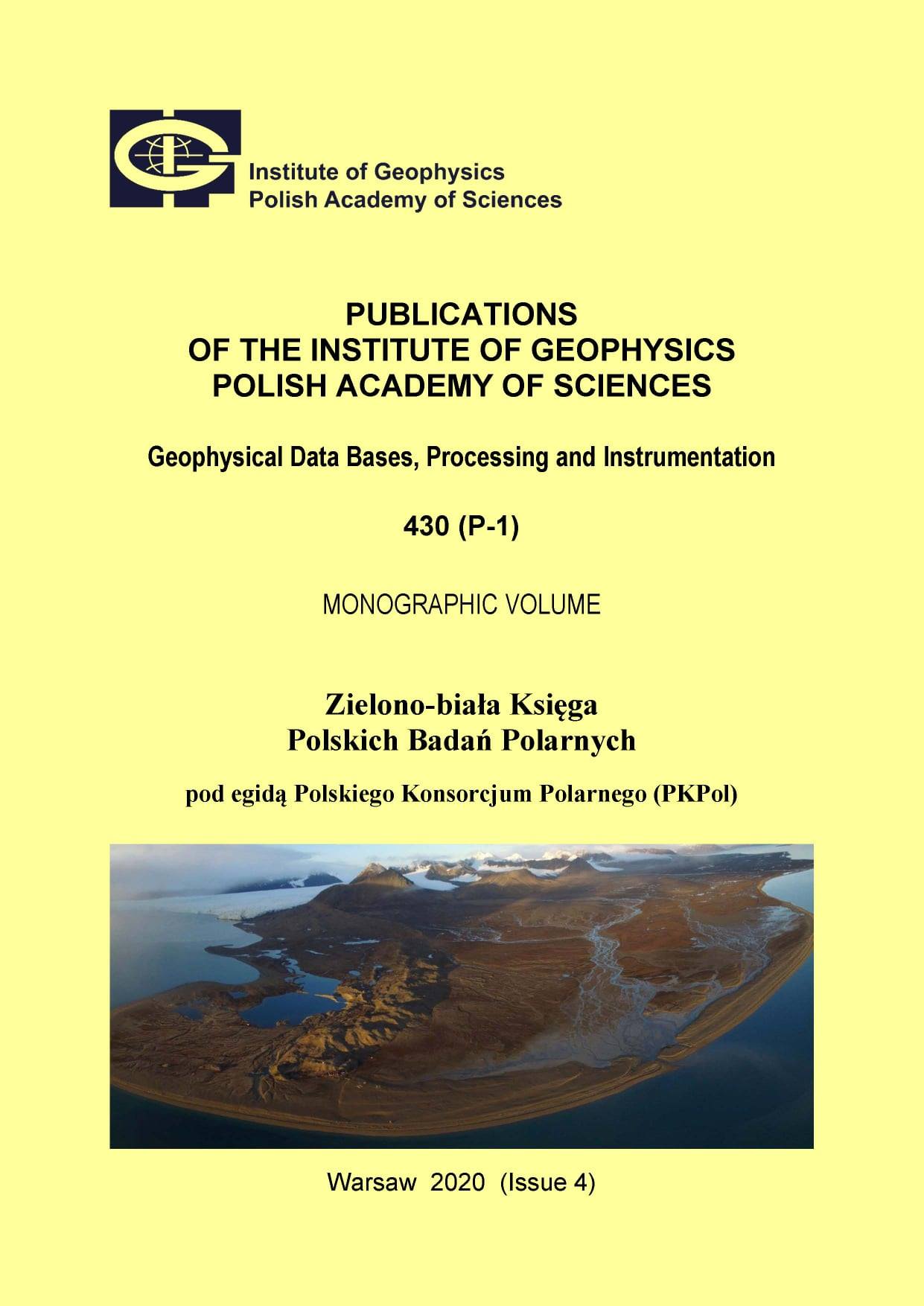
" Biała księga to dokument zawierający opracowane urzędowo, koncepcyjne propozycje odnoszące się do określonych dziedzin polityki unijnej i zazwyczaj prezentuje katalog konkretnych propozycji i środków, których realizacja ma służyć urzeczywistnianiu zadań traktatowych [UE].
Zielona księga jest raportem zbierającym informacje na określony temat i zazwyczaj stanowi punkt wyjścia do opracowania białej księgi. Niniejszy dokument łączy walory obu rodzajów ksiąg. "
Nabór kandydatek i kandydatów na UCZESTNIKÓW 44 WYPRAWY POLARNEJ IGF PAN
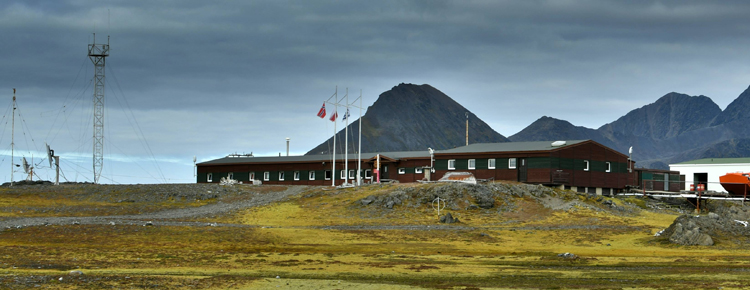
nstytut Geofizyki Polskiej Akademii Nauk w Warszawiee ogłasza nabór kandydatek i kandydatów na uczestników 44 Wyprawy Polarnej IGF PAN do Polskiej Stacji Polarnej Hornsund na Spitsbergenie w sezonie 2021/2022.
Więcej informacji w załączniku pdf oraz na stronie
Krzysztof Roman Lankauf
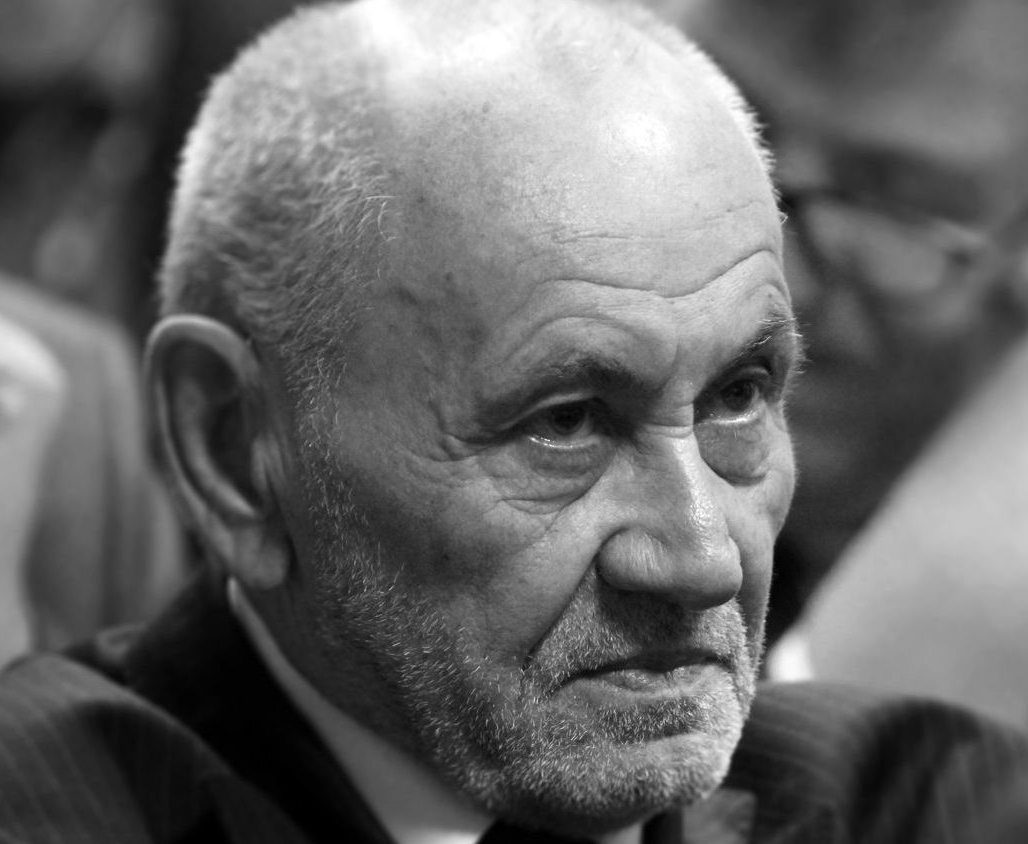 W wieku 75 lat zmarł dr Krzysztof Roman Lankauf, emerytowany pracownik Wydziału Biologii i Nauk o Ziemi UMK, geograf i geomorfolog, badacz współczesnych procesów stokowych i sedymentologicznych oraz zlodowaceń Spitsbergenu.
W wieku 75 lat zmarł dr Krzysztof Roman Lankauf, emerytowany pracownik Wydziału Biologii i Nauk o Ziemi UMK, geograf i geomorfolog, badacz współczesnych procesów stokowych i sedymentologicznych oraz zlodowaceń Spitsbergenu.
Krzysztof Roman Lankauf urodził się 22 września 1945 r. w Łążynie (gmina Zławieś Wielka, powiat toruński). W 1968 r. ukończył studia geograficzne na Wydziale Biologii i Nauk o Ziemi Uniwersytetu Mikołaja Kopernika w Toruniu. Pracę magisterską pt. "Współczesne procesy denudacyjne na stokach dolin w okolicach Torunia" napisał pod kierunkiem dr Zofii Churskiej. Po studiach został zatrudniony jako pracownik naukowo-techniczny w Zakładzie Geografii Fizycznej, w powstającej właśnie Pracowni Sedymentologicznej. Oprócz pracy na stanowisku technicznym zajmował się badaniami współczesnych procesów stokowych, zwłaszcza mechanizmem spłukiwania w rejonie Zamku Bierzgłowskiego - Rzęczkowa - Skłudzewa oraz w Ciechocinie nad Drwęcą. W 1975 roku został nauczycielem akademickim (starszym asystentem), równocześnie kontynuował badania dotyczące zagadnień sedymentologii osadów czwartorzędowych, zwłaszcza pochodzenia wodnego.
Od 1977 roku Jego drugą pasją stały się zagadnienia współczesnego zlodowacenia na Spitsbergenie. Na Spitsbergen wyjeżdżał wielokrotnie (1977,1978, 1985, 1989, 1995, 1996 i 2000). Jego badania polarne zaowocowały w 1999 r. rozprawą doktorską pt. "Recesja lodowców rejonu Kaffiøyry (Ziemia Oskara II - Spitsbergen) w XX wieku". Na Spitsbergenie prowadził również pomiary topograficzne, jest autorem wielu map lodowców w regionie Kaffiøyry. Jest autorem kilkudziesięciu prac naukowych z zakresu geomorfologii, sedymentologii oraz współczesnych zlodowaceń. W latach 1981-1982 pełnił funkcję zastępcy dyrektora Instytutu Geografii UMK, a w okresie 1987-2006 był kierownikiem administracyjnym w Instytucie. Równolegle kierował Pracownią Sedymentologii i Paleoekologii oraz Interdyscyplinarnym Zespołem Metod Datowania. W 2010 r. przeszedł na zasłużoną emeryturę.
Dr Krzysztof Roman Lankauf zmarł 24 listopada.
https://torun.wyborcza.pl/torun
ARCTIC FUTURES SYMPOSIUM 2020

ARCTIC FUTURES SYMPOSIUM 2020
11th edition - online - 30 November to 2 December 2020
This is a friendly reminder that the International Polar Foundation along with its many Arctic stakeholder partners has invited you to attend the 11th annual Arctic Futures Symposium.
Due to COVID-19, the Arctic Futures Symposium 2020 will be held as a series of webinars over three successive days in the afternoon Central European Time (GMT+1) during week 49 (Monday 30 November - Wednesday 2 December).
Every year, the Arctic Futures Symposium creates discussions and exchanges between Arctic stakeholders from various backgrounds and with different perspectives over key challenges and issues the Arctic is facing.
The symposium will feature panel discussions that cover a number of key topics chosen by Arctic stakeholder partners including:
- Arctic Challenges
- Arctic Policies of the EU, Arctic States, and Arctic Stakeholders
- Arctic Community Needs and Preparedness
- Pollution, Climate Change and Biodiversity: Challenges and Solutions
- Community Resilience through Empowerment
- A Uniquely Arctic Entrepreneurship and Investment Culture
- The EU's Engagement in the Arctic and Implementing the EU Green Deal
An outline of topics that will be addressed in the webinars is available on the symposium website. There you can also find a list of confirmed speakers as well as the symposium programme.
The event is free of charge and open to all.
If you would like to attend the event, registration is required, as it helps the event managers to better plan the logistics of the event and better meet participants' needs. A link to join the webinar will only be sent to participants who have registered.
If you have any trouble registering, or if you have any questions regarding the symposium, please don't hesitate to contact us at
Thank you for your attention. We look forwards to seeing many of you online in a few weeks' time!
Zmarł prof. Marek Grześ
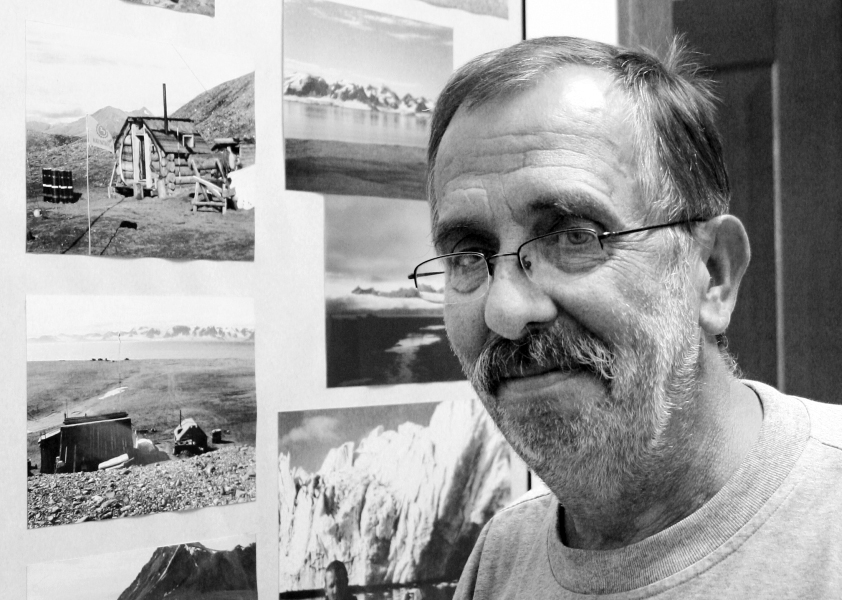
20 sierpnia zmarł dr hab. Marek Grześ, prof. UMK, znany hydrolog i glacjolog, uczestnik pierwszej Toruńskiej Wyprawy Polarnej na Spitsbergen. Miał 74 lata.
Dr hab. Marek Grześ, prof. UMK urodził się 23 maja 1946 r. w Zgorzelcu. Studia geograficzne na Uniwersytecie Mikołaja Kopernika w Toruniu ukończył w 1969 r. W 1976 r. uzyskał stopień doktora nauk przyrodniczych, za pracę nt. osadów dennych jezior. W 1992 r. otrzymał stopień doktora habilitowanego nauk o Ziemi w zakresie geografii – hydrologii na podstawie rozprawy pt. „Zatory i powodzie zatorowe na dolnej Wiśle. Mechanizmy i warunki”.
fot. Andrzej Romański
Po ukończeniu studiów rozpoczął pracę w Stacji Badawczej w Siemionkach nad jeziorem Gopło na stanowisku asystenta na Wydziale Biologii i Nauk o Ziemi UMK. W 1973 r. podjął pracę w Zakładzie Geomorfologii i Hydrologii Instytutu Geografii i Przestrzennego Zagospodarowania Polskiej Akademii Nauk w Toruniu, początkowo na stanowisku asystenta, a od 1976 r. adiunkta. Od 1992 r. pracował na stanowisku docenta. W 1987 r. został kierownikiem Stacji Badawczej PAN w Dobiegniewie nad Zbiornikiem Włocławskim. W 1994 r. rozpoczął pracę jako adiunkt w Zakładzie Hydrologii i Gospodarki Wodnej Instytutu Geografii UMK, a w latach 1996-2000 był jego kierownikiem. Następnie był kierownikiem Zakładu Kriologii i Badań Polarnych (2000-2012).
Problemy badawcze podejmowane przez prof. Marka Grzesia koncentrowały się wokół zagadnień hydrologicznych, glacjologicznych, gospodarki wodnej, a także fizyki wody i ochrony zasobów wodnych. Prowadził badania na Zbiorniku Włocławskim i dolnej Wiśle, gdzie realizował prace dotyczące problemów związanych z powstawaniem zatorów lodowych i przeciwdziałaniem ich skutkom. Prowadził je w oparciu o własną, autorską metodykę badań. Był autorem ponad 100 publikacji naukowych poświęconych problemom hydrologii Polski i krajów polarnych.
Brał udział w wyprawach naukowych m.in. do Mongolii (1974), prowadził badania glacjologiczne w Górach Skandynawskich (1985) i Tien-Szan (1990). Jednak Jego największą pasją stały się badania polarne na Spitsbergenie. Uczestniczył w pierwszej Toruńs
kiej Wyprawie Polarnej na Spitsbergen w 1975 r., a następnie w wyprawach Polskiej Akademii Nauk do Hornsundu (letnie wyprawy 1978 i 1979 oraz zimowanie w latach 1980/1981). Na Spitsbergen wracał wielokrotnie, najczęściej
jako kierownik wielu wypraw. Przyczynił się do rozszerzenia badań z zakresu glacjologii, hydrologii i permafrostu, a także do rozbudowy i modernizacji Stacji Polarnej UMK na Spitsbergenie. Odbył liczne staże zagraniczne w Rosji, Szwecji, USA, Niemczech, Finlandii, Francji, Austrii, Szwajcarii.
W Uniwersytecie prowadził zajęcia specjalistyczne, głównie z hydrologii, glacjologii, gospodarki wodnej. Wykształcił kilkudziesięciu magistrów i wypromował dwóch doktorów. Był kierownikiem Międzywydziałowych Studiów Matematyczno-Przyrodniczych.
Był również doskonałym organizatorem. Dzięki Jego staraniom od 2009 r. odbywały się specjalistyczne warsztaty pt. „Lodowe problemy rzek”. Współpracował z wieloma instytucjami odpowiedzialnymi za gospodarkę wodną w Polsce. Był autorem lub współautorem wielu opracowań aplikacyjnych z zakresu gospodarki wodnej.
Pełnił funkcję prezesa Klubu Polarnego Polskiego Towarzystwa Geograficznego, był członkiem wielu organizacji: Rady Naukowej IGiPZ PAN w Warszawie, Komitetu Gospodarki Wodnej PAN, Komitetu Geofizyki PAN, Komitetu Badań Polarnych PAN oraz członkiem międzynarodowych organizacji: Komisji Śniegu i Lodu IAHS, Międzynarodowej Asocjacji Badań Hydraulicznych, Międzynarodowego Stowarzyszenia Glacjologicznego – IGS.
Prof. Marek Grześ zmarł 20 sierpnia. Uroczystości pogrzebowe rozpoczną się 26 sierpnia o godz. 13:00 mszą świętą w Kościele Świętych Apostołów Piotra i Pawła przy ul. Ks. Antoniego Owczarka w Ciechocinku.
https://torun.wyborcza.pl/torun/
APS / Advances in Polar Science

IASC Releases 2020 State of Arctic Science Report
 IASC's 2020 State of Arctic Science Report aims to be a cohesive synthesis of international Arctic research activities and priorities, as gathered from the Arctic research community itself.
IASC's 2020 State of Arctic Science Report aims to be a cohesive synthesis of international Arctic research activities and priorities, as gathered from the Arctic research community itself.
Arctic science is moving faster than ever, and so this report is aimed at Arctic science agencies, Arctic science managers, and Arctic science users including a wide range of decisionmakers and policymakers, to help all Arctic science stakeholders stay up to date on Arctic research.
IASC, the International Arctic Science Committee, was founded in 1990 with a mission of encouraging and facilitating cooperation in all aspects of Arctic research, in all countries engaged in Arctic research, and in all areas of the Arctic region. IASC is a connector – connecting scientists across international, disciplinary, and cultural boundaries and connecting with those who do research with those who seek the outcomes of that research.
One way in which IASC does this is by providing a collective voice to the international Arctic research community. Decadally, this is addressed through the International Conference on Arctic Research Planning process (e.g., ICARP-III’s “Integrating Arctic Research - A Roadmap for the Future”). However, with rising temperatures, geopolitical interests, the initiation of the Arctic Science Ministerial meetings, and an increasingly active landscape of international Arctic (science) organizations, Arctic science is moving faster than ever.
IASC is grounded in our community of scientists and aims to provide a consensus voice – by reaching out to their national communities, connecting internationally, and reporting out. This report presents a synthesis of a breadth of input, but it is not exhaustive, as input came only through the IASC Working Groups. Indeed, there are many other NGOs, IGOs, institutions, nonprofits, Indigenous Peoples’ Organizations, companies, countries, and more working in the Arctic knowledge space. Nevertheless, this report comes from scientists themselves.
Each of the 23 countries repres
ented in IASC’s scientific Working Groups (Atmosphere, Cryosphere, Marine, Social & Human, Terrestrial) was asked to submit a summary detailing the research priorities and activities in their country. This corpus of content was compiled by each Working Group’s leadership. These were condensed into this report here, then reviewed by the IASC Executive Committee and Council with an eye towards interdisciplinary connections. For national and/or disciplinary breakdowns, please contact IASC Working Group members directly (contact information is available at https://iasc.info).
Following an internal recommendation, this report, IASC’s 2020 State of Arctic Science Report is aimed at Arctic science agencies, Arctic science managers, and Arctic science users including a wide range of decisionmakers and policymakers – e.g., national research councils and scientific foundations, Arctic ministers and ambassadors, international science bodies, and more. It will also be delivered to the organizers of the 3rd Arctic Science Ministerial.
It is exciting to be able to learn from the insights of the Arctic science community, so please read on and also join IASC in thanking the community for their time and input.
_________________________________________________________________________
nformation which you would like to put out to IASSA members please send to Ann Crawford at
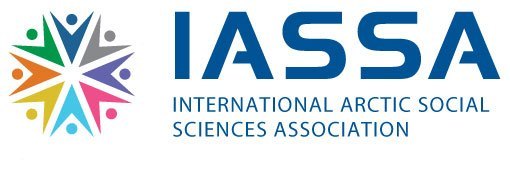
Jest już Muzeum Badań Polarnych w Polsce
Po wielu latach starań mamy wreszcie sfinalizowaną sprawę stałego miejsca dla Muzeum Badań Polarnych.
Idea tego muzeum narodziła się w Lublinie, a muzeum pierwotnie miało mieścić się w jednym ze spichlerzy w Kazimierzu Dolnym nad Wisłą. Muzeum pozostało w końcu na ziemi lubelskiej dzięki wsparciu samorządu tego województwa. Pokonanie wielu barier formalnych i uzyskanie akceptacji dla idei polarnych w Ministerstwie Kultury i Dziedzictwa Narodowego było możliwe dzięki niesamowitemu zaangażowaniu i pasji dr Andrzeja Piotrowskiego jako organizatora i kustosza tego muzeum.
Czym będzie zajmowało się Muzeum Badań Polarnych wynika ze Statutu nadanego przez Sejmik Województwa Lubelskiego.
Pozostaje nam więc teraz zakasać rękawy i przegrzebać archiwa oraz magazyny ze sprzętem i okazami w naszych instytutach naukowych i na uczelniach oraz prywatnych zbiorach, aby mogły być one udostępnione szerokim rzeszom społeczeństwa.
Prof. dr hab. Piotr Głowacki - Przewodniczący Komitetu Badań Polarnych przy Prezydium PAN
3rd Arctic Science Ministerial Research Community Workshops
 You are invited to participate in an online workshop to discuss topics and ideas that you think are important for policy makers and the Arctic Science Ministers to better understand and prioritize at the Third Arctic Science Ministerial (ASM3; https://asm3.org/). Bringing together States, Arctic Indigenous participants, and international organizations, ASM3 aims to take action on coordinated Arctic observing, research, and education in an open and transparent format which includes all Arctic stakeholders.
You are invited to participate in an online workshop to discuss topics and ideas that you think are important for policy makers and the Arctic Science Ministers to better understand and prioritize at the Third Arctic Science Ministerial (ASM3; https://asm3.org/). Bringing together States, Arctic Indigenous participants, and international organizations, ASM3 aims to take action on coordinated Arctic observing, research, and education in an open and transparent format which includes all Arctic stakeholders.
In an effort to engage the broader Arctic research community in the ASM3 process, IASC (https://iasc.info/), IASSA (https://iassa.org/), and APECS (https://www.apecs.is/) are convening two ASM3 Research Community Workshops on 15 June 2020.
- Each two hour workshop will start with an introduction to the ASM3 process and lay out the goals of the workshop.
- The core of the online workshop will be an hour-long session for small group breakout discussions (6-8 people), each group dedicated to one of the four themes below.
- All attendees will then reconvene to report back and share the discussions.
- First option: 15 June 2020, 8:00-10:00 GMT(17:00 Tokyo, 11:00 Moscow, 10:00 Berlin, 9:00 London). To participate, register at http://tiny.cc/ASM3RCW1
- Second option: 15 June 2020, 16:00-18:00 GMT (8:00-10:00 Alaska, 12:00 Ottawa / Washington, D.C., 14:00 Nuuk). To participate, register at http://tiny.cc/ASM3RCW2
- Please note: the workshops will be held via Zoom, but phone call-in numbers will also be available. The workshops’ working language will be English.
We encourage ALL those who work in the realm of Arctic research to participate; this includes researchers, managers, Arctic residents and Indigenous Peoples, partners, educators, policy makers, and other stakeholders. Science ministry representatives are also welcome to participate. However, the organizers wish to emphasize that this is an opportunity for individual contributions. Workshop participants are invited to contribute their own perspectives and not necessarily to represent a broader group of any kind (there are other avenues for nations, Indigenous Peoples’ Organizations, and international science organizations).
“Knowledge for a Sustainable Arctic” is the overall theme of ASM3. Under that umbrella, four sub-themes are focused on taking action on the most urgent challenges facing the Arctic, which international scientific cooperation can help achieve:
- Observe the status of Arctic changes
- Understand the local and global impacts
- Respond to the changes based on a shared understanding
- Strengthen these efforts through education and capacity-building for future generations
These four steps are not independent, but rather an iterative cycle. They represent the necessary actions to realize our overarching goal. The four sub-themes are described in more detail here (https://asm3.org/library/Files/ASM3%20Themes.pdf).
An online workshop can enable broad participation, especially in times where conferences and international travel are cancelled and uncertain. However, we recognize that online engagement is not equal for all and can exclude people, too. In addition to participating in the online workshops, all members and stakeholders of the Arctic research community (including Arctic residents and Indigenous Peoples) are invited to fill out this survey, which mirrors the workshops’ structure: http://tiny.cc/ASM3ScienceForm
The workshop organizers will make a summary report based on the discussions in the workshops and survey, and this report will be shared with the ASM3 Organizing Committee and Science Advisory Board. If you have any input or questions about these workshops, please contact
Fill out the ASM3 Research Community Workshop Survey here!
Odszedł od nas na zawsze kolega Marek Grad
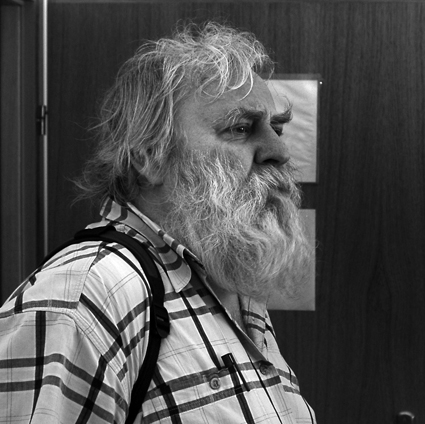
Z wielkim smutkiem i żalem informuję, że 17 maja w wieku 68 lat zmarł nagle i niespodziewanie nasz znakomity polarnik - Profesor Marek GRAD, uczestnik wypraw do Arktyki i Antarktyki. Dzisiaj ze względu na pandemię i związane z tym ograniczenia, pożegnaliśmy Marka na warszawskim cmentarzu na Bródnie w dużo skromniejszym gronie. Nad grobem w imieniu Komitetu i całej „polarnej rodziny” przekazałem rodzinie Marka nasze kondolencje i wyrazy współczucia. Zawsze będziemy Go pamiętali jako człowieka stojącego na straży rzetelności prowadzonych badań i prezentowanych wyników, a jednocześnie jako Kolegę wspierającego nas w nowych inicjatywach i wyzwaniach.
Przewodniczący Komitetu Badań Polarnych
Prof. dr hab. Piotr Glowacki
P.S. Tych, którzy będą mieli w przyszłości chęć i okazję zapalenia znicza na Jego grobie informuję, że grób jest położony 20 m w kierunku zachodnim od skrzyżowania alejki 51 z alejką H.
Arctic Science Summit Week 2021
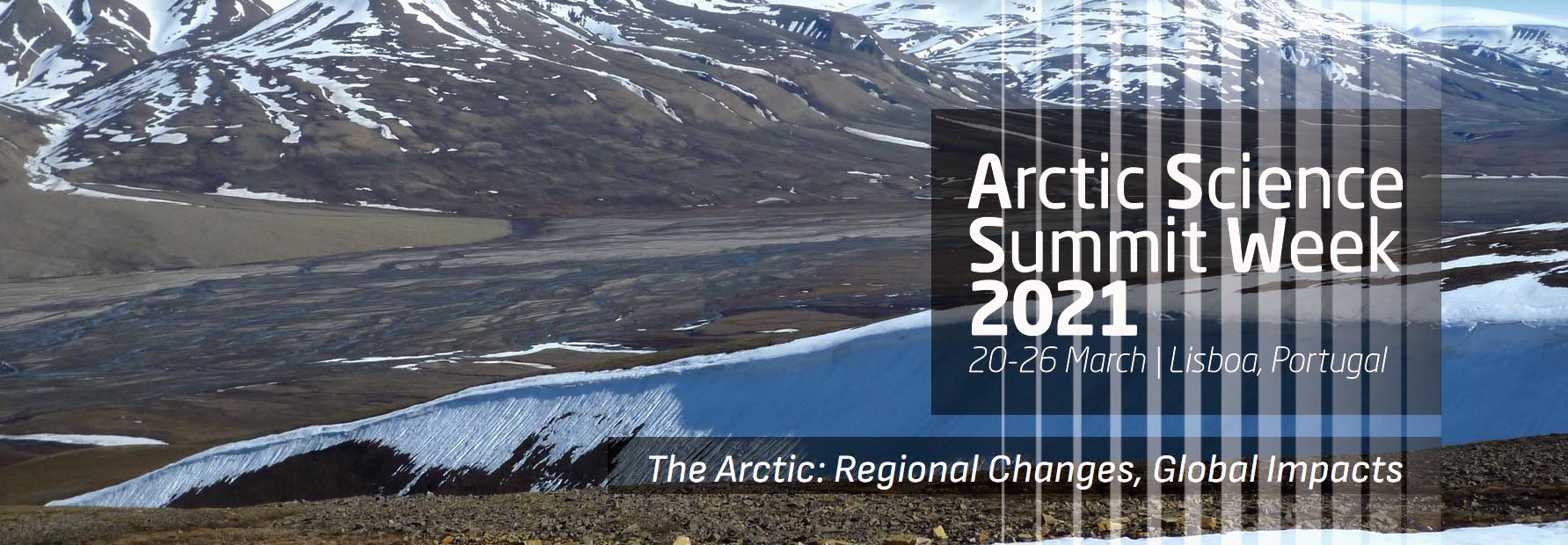
Invitation to Lisbon for the ASSW2021
On behalf of the Portuguese Minister of Science, Technology and Higher Education, the Portuguese Foundation for Science and Technology (FCT) and the Local Organizing Committee we are pleased to invite you to take part in the Arctic Science Summit Week 2021, which will take place in Lisbon from 20 to 26 March 2021. The Conference is organized by FCT, Ciência Viva, AIR Center, the Portuguese Arctic Community and by IASC and partners.
Framed by the overarching theme for the Science Conference “The Arctic: Regional Changes, Global Impacts”, Lisbon invites International experts on the Arctic and Indigenous Peoples to discuss the “New Arctic” and also its impacts and interactions to and with the lower latitudes.
It will be a pleasure to warmly receive you all in Lisbon for the ASSW2021.
Looking forward to seeing you all Lisbon next year.
Helena Pereira, President of the Board of Directors of the Portuguese Foundation of Science and Technology
João Canário, Chairman of the ASSW2021
Gonçalo Vieira, Chairman of the ASSW2021 International Scientific Committee
ASM3 Science Feedback: Version 1
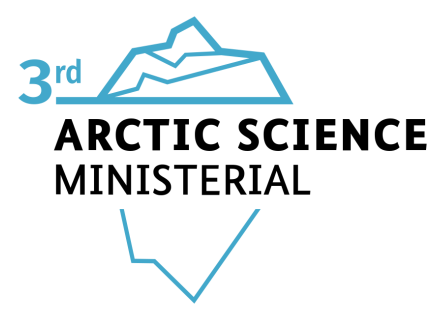 ASM3 Science Feedback: Version 1
ASM3 Science Feedback: Version 1
SCAR Fellowship Opportunities

Dear Colleagues,
SCAR launches its 2020 Antarctic-related Fellowships for early-career researchers today. SCAR will offer 3 to 4 fellowships of up to USD $15,000 each for 2020. The Fellowships enable early-career researchers to join a project team from another country, opening up new opportunities and often creating partnerships that last for many years and over many Antarctic field seasons.
The deadline for fellowship applications is 26 August 2020.
Find out how to apply for the fellowship here: https://scar.org/awards/fellowships/information/
The SCAR Secretariat has compiled a list of frequently asked questions on our website, where you can also find an overview of past and present SCAR Fellows.
Other opportunities from partners
The Scientific Committee on Antarctic Research (SCAR), the Council of Managers of National Antarctic Programs (COMNAP), and the Commission for the Conservation of Antarctic Marine Living Resources (CCAMLR) have been working together for many years to support talented early-career researchers, scientists, engineers, environmental managers, and other professionals to strengthen international capacity and cooperation in fields such as science support and facilitation, environmental management implementation, and climate, biodiversity, conservation, humanities and astrophysics research by way of an annual funding opportunity. In 2019, these Antarctic organisations were joined by the International Association of Antarctica Tour Operators(IAATO). IAATO supported two Antarctic fellows in their inaugural round and join in 2020 to support an early career person.
The COMNAP and IAATO Fellowship Scheme and the CCAMLR Scientific Scholarship Scheme also launch today. Read the Announcement of Opportunity 2020 here.
Full details of these schemes are available on their respective websites below.
For more information on SCAR Fellowships, visit the SCAR website at:
www.scar.org/awards/fellowships/information/
COMNAP and IAATO will each offer one fellowship with funding of up to USD $15,000. The deadline for fellowship applications is 31 May 2020.
For information on the COMNAP and IAATO Fellowships, visit the COMNAP website at:
www.comnap.aq/SitePages/fellowships.aspx
The CCAMLR Scientific Scholarship provides funding of up to AUD $30,000 to assist early-career scientists to participate in the work of the CCAMLR Scientific Committee and its working groups over a period of two years. The objective of the scheme is to build capacity within the CCAMLR scientific community to help generate and sustain the scientific expertise needed to support the work of CCAMLR in the long-term. The deadline for CCAMLR scientific scholarship applications is 1 October 2020.
For information on CCAMLR Scholarships, visit the CCAMLR website at:
www.ccamlr.org/en/science/ccamlr-scientific-scholarship-scheme
Best wishes,
The SC-HASS Team
NVP International Summer School 2020 - Global Arctic

An interdisciplinary PhD and Post-Doc summer school in Longyearbyen, Svalbard
Hosted by the Norwegian Scientific Academy for Polar Research (NVP), in cooperation with the University Centre in Svalbard (UNIS) and the Nansen Scientific Society.
- Venue: UNIS – The University Centre in Svalbard, Longyearbyen, Svalbard.
- Time: June 20th – 28th 2020.
The Arctic region is rapidly increasing in global significance. Climate change transforms the environmental conditions in previously unseen ways with new challenges and opportunities for logistics, resource exploitation and commercial development, but also exerting pressures on indigenous and local populations and vulnerable ecosystems. Geopolitical and strategic issues are brought to the forefront of the international political agendas.
The challenges encountered in the Arctic are mirrored in the Second Pole – the Antarctic, and particularly within the region of the Third Pole, the Himalayan Region. NVP has therefore decided to apply the concept of “Three Poles” to be the framework that links the Arctic, the Antarctic and the Himalayan regions as an umbrella framework for the Svalbard Summer Schools 2020 -2021 – 2022, to be held in Longyearbyen, Svalbard. For more information, see http://polar-academy.com/summerschools/summer-schools-2020-2022/ and http://polar-academy.com/summer-schools/global-arctic-2020/The main target group for the NVP Summer School 2020 - Global Arctic, is PhD students and Post-docs. In some cases, students with a MSc degree or equivalent and with special professional qualifications may also participate. The relevance of current studies, including personal motivation and relevant experiences are important selection criteria.
Applications for the NVP Summer School 2020 – Global Arctic shall include a CV and a letter which describes a rationale and justification for the application. A tentative title of a poster to present current studies / projects should be included.
Applications are sent to the Norwegian Scientific Academy for Polar Research (NVP), att. Office Manager Jorge Kristiansen e-mail
Application deadline is 15th March 2020.
The selected candidates will be notified by the end of March 2020
QGreenland project

Imagine being able to explore data about Greenland animals, ice and communities all in one place. Through the new QGreenland project, this can become a reality. QGreenland, a free geographic information system (GIS) mapping tool that is in development at the National Snow and Ice Data Center (NSIDC), will be available for download later this year. However, to make the project as useful and relevant as possible, the QGreenland development team needs help from potential users, who are encouraged to provide input via a survey.
Twila Moon, a research scientist at NSIDC, is the principal investigator on the project. She will lead the creation of the GIS data package for the tool in collaboration with a team at NSIDC and the Cooperative Institute for Research in Environmental Sciences as well as an international editorial board, which will help to identify and curate the data. Moon hopes QGreenland will inspire Arctic-wide resources of this nature.
QGreenland is modeled from the Norwegian Polar Institute’s Quantarctica, and will work on QGIS software. It will contain interdisciplinary data that researchers, educators, resource managers and communities can use to access information about Greenland’s ocean, land, ice sheet, biology, and communities. In addition to accessing and downloading all-in-one data, users can add to and conduct analyses on the data.
QGreenland is funded by the National Science Foundation’s EarthCube program. Version 1 is expected to be released in late fall 2020. For updates and more information, please sign up for the QGreenland newsletter.
Dr Jan Cisak
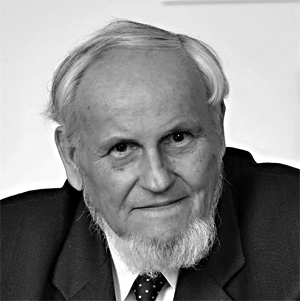
Z przykrością informujemy, że 6 lutego 2020 roku zmarł w wieku 75 lat dr Jan CISAK, polarnik. Znaliśmy go jako niestrudzonego geodetę promującego polskie nazwy dla eksplorowanych i odkrywanych rejonów w Arktyce i Antarktyce. Uczestnik wielu wypraw, w sezonie 1983/84 kierował VI Polską Wyprawą do Stacji Polarnej w Hornsundzie na Spitsbergenie. Tracimy kolejnego dobrego kolegę i przyjaciela.
Msza żałobna zostanie odprawiona w kościele pw. Św. Rafała i Alberta na ul. Gwiaździstej na Marymoncie w piątek 14 lutego o godz. 13:00.
Pogrzeb odbędzie o 14:30 na Powązkach cywilnych w kwaterze 238 (dojście od 6 bramy na ul. Ostroroga).
IASC Cross-Cutting and Working Group Proposals 2020
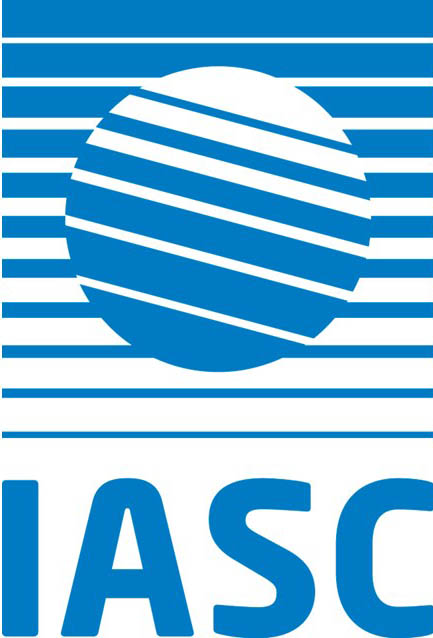 Dear IASC Community,
Dear IASC Community,
This is a reminder that IASC is now receiving proposals for consideration for IASC funding in 2020. Proposals can be limited to one Working Group, relevant to all five, or anything in between. (Note: Working Groups must allocate at least 40% of their budget in cooperation with other Working Groups.) All proposals will be fully discussed and considered at the Working Group meetings at ASSW.
The proposal template is here: https://iasc.info/images/media/print/logo-forms/IASC_Proposal_Template.docx
Please note that while proposals do NOT have to be submitted by WG members, all proposals should be discussed with WG leadership/membership before submission. Cross-cutting proposals should engage all relevant collaborators early in the development phase. When you prepare your proposals, please consider how the activity relates to the Working Group scientific priorities here: https://iasc.info/outreach/news-archive/396-new-iasc-science-work-plans, and the IASC Strategic Plan here: https://iasc.info/strategic-plan. If you are thinking about a proposal, please be proactive in seeking consultation!
The deadline for proposal submission is 1 March 2020.
Best,
Allen
Dr. Allen Pope
IS-600 Akureyri, Iceland
+354 515 5824

